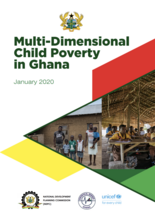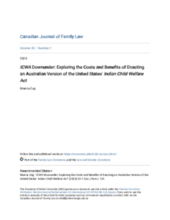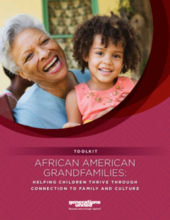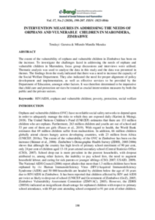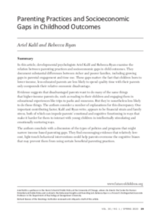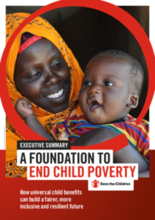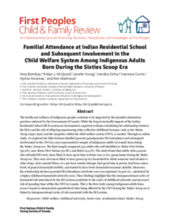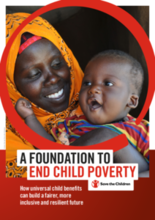Displaying 141 - 150 of 505
The aim of this study is to understand the complexity of child poverty in Ghana by investigating children's access to various goods and services crucial for their long-term development.
This article from the Canadian Journal of Family Law finds that an Australian version of the Indian Child Welfare Act (ICWA) of the United States is feasible and could significantly reduce Indigenous child removals and the break up of Indigenous families and communities in Australia.
The Center for the Study of Social Policy (CSSP) and the University of Houston Graduate College of Social Work have collaborated to create the upEND movement, a grassroots advocacy network designed to tap into work already being done and spark new work that will ultimately create a society in which the forcible separation of children from their families is no longer an acceptable solution for families in need.
This toolkit is designed to give resources and tips to child welfare agencies, other government agencies and nonprofit organizations, so they can better serve all African American grandfamilies.
The provision of material assistance, which is widespread in child protection settings, has received negligible scholarly attention. This article aims to describe and conceptualize this underresearched practice and to explore the challenges workers face when implementing it. The study described here included 20 in-depth interviews conducted with social workers working in an innovative Israeli child protection program called Families on the Path to Growth.
To investigate the challenges faced in addressing the needs of orphans and vulnerable children in Marondera, focus group discussions and interviews were utilised. Thematic analysis was used to analyse the data in this study and the data was presented in themes.
In this article, developmental psychologists Ariel Kalil and Rebecca Ryan examine the relation between parenting practices and socioeconomic gaps in child outcomes.
This report from Save the Children calls upon governments, donors and other development partners to urgently support an expansion in social protection coverage of children and their caregivers (predominantly women).
Through an online study, the authors of this paper explored the links between familial (parents/grandparents) Indian Residential School (IRS) attendance and subsequent involvement in the child welfare system (CWS) in a non-representative sample of Indigenous adults in Canada born during the Sixties Scoop era.
This report from Save the Children calls upon governments, donors and other development partners to urgently support an expansion in social protection coverage of children and their caregivers (predominantly women), working progressively towards UCBs.

